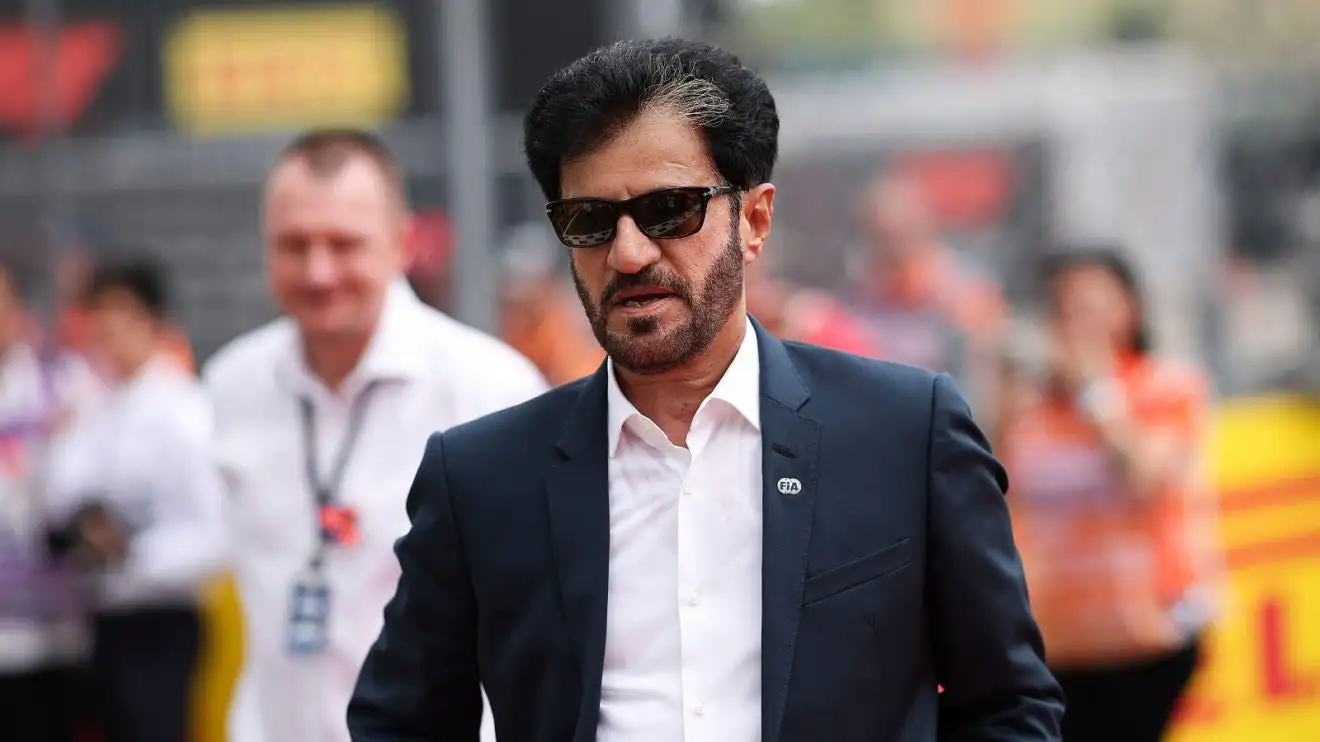
FIA President Mohammed Ben Sulayem Visits Japan to Strengthen Global Mobility Innovation and Motorsport Development
Mohammed Ben Sulayem, President of the Fédération Internationale de l’Automobile (FIA), will undertake an official visit to Japan this week, reinforcing the country’s critical role in shaping the global future of sustainable mobility and motorsport excellence. The high-level visit highlights the strategic partnership between the FIA and key Japanese stakeholders, as well as the federation’s commitment to advancing innovation, safety, and inclusivity in transportation and motor racing worldwide.
As the world’s governing body for motorsport and the international federation representing mobility organisations across the globe, the FIA plays a dual role in guiding the evolution of both competitive racing and sustainable mobility ecosystems. President Ben Sulayem’s visit to Japan marks a significant moment in that mission, particularly as the country continues to emerge as a global leader in advanced automotive technologies and motorsport enthusiasm.
Reinforcing Japan’s Role in Global Mobility Leadership
Japan, long celebrated for its automotive excellence and technological innovation, has become a central player in the mobility revolution. The nation’s efforts in developing future-oriented mobility solutions—ranging from intelligent transport systems and smart infrastructure to green energy integration—have established benchmarks globally.
The country’s capital, Tokyo, and several regional municipalities have actively deployed advanced Mobility-as-a-Service (MaaS) platforms, which aim to offer seamless and sustainable urban transit by combining various public and private transport modes into integrated digital services. Japan has also been at the forefront of research into alternative fuels such as hydrogen, and is home to major global automakers that are investing in next-generation electric and autonomous vehicles.
President Ben Sulayem’s visit is intended to recognize and support these contributions by strengthening dialogue between the FIA, Japan’s automotive leaders, government authorities, and civil society. It also reflects the FIA’s broader strategy to encourage innovation partnerships that can benefit road users and motorsport participants worldwide.
Promoting Growth and Participation in Motorsport
In addition to its leadership in mobility technology, Japan has demonstrated robust growth and deep-rooted passion in the realm of motorsport. The Japan Automobile Federation (JAF), the country’s national sporting authority (ASN) under the FIA framework, has reported a significant surge in motorsport activity. Over 200,000 drivers currently hold competition licenses, representing a more than 20% increase over the past five years—a clear indicator of rising grassroots engagement and sustained interest in the sport.
One of the most visible signs of motorsport’s growing popularity in Japan is the record-breaking attendance at the Formula 1 Japanese Grand Prix held in Suzuka earlier this year. With crowd numbers reaching the highest levels since 2006, the event reaffirmed Japan’s status as a key hub for premier international motorsport.
Through his visit, Ben Sulayem will have the opportunity to connect directly with fans, athletes, and sports officials who are shaping the country’s motorsport future. Hosted by JAF, he will tour key facilities including the City Circuit and the JAF Control Tower, which serve as both operational centers and symbols of Japan’s investment in motorsport infrastructure. These facilities reflect a national commitment to growing the sport in both urban and rural areas, while ensuring safety, accessibility, and regulatory excellence.
Strategic Engagements with Japanese Government Leaders
Central to the FIA President’s agenda in Japan are several high-level meetings with government officials and influential stakeholders. Scheduled engagements include talks with Japanese Prime Minister Shigeru Ishiba, Koji Murofushi, Commissioner of the Japan Sports Agency, and Hiromasa Nakano, Minister of Land, Infrastructure, Transport and Tourism. These discussions will focus on shared priorities such as the integration of safe mobility systems, regulatory cooperation in motorsport governance, and support for technological research aimed at carbon neutrality and road safety.
The visit aims to reinforce the role of public-private partnerships in transforming transport systems and fostering innovation ecosystems. By aligning governmental policy with private-sector capabilities and international standards set by the FIA, Japan is well-positioned to lead regional and global efforts to decarbonize transportation and democratize access to motorsport.
Speaking ahead of his visit, Ben Sulayem emphasized the multifaceted importance of Japan on the global stage:
“Japan continues to be a beacon of technological leadership in the automotive sector, motorsport passion, and innovative mobility solutions which improve people’s quality of life. This visit is an opportunity to strengthen our ties and align our shared goals that can benefit the global community.”
He added, “It also reflects the FIA’s broader vision to drive progress in innovation, safety, and sustainability across mobility and motorsport. With its powerful combination of industrial strength, governmental commitment, and rich sporting heritage, Japan stands as a key partner in realizing these global objectives.”
Aligning with the FIA’s Global Vision
The visit forms part of a broader strategic initiative by the FIA to encourage more inclusive and innovative ecosystems across its two core domains: mobility and motorsport. Under Ben Sulayem’s leadership, the FIA has launched and supported various global campaigns to enhance road safety, expand participation in motorsport—particularly among youth and underrepresented communities—and push forward sustainable development goals in transportation.
The FIA’s ongoing commitment to sustainability is rooted in its environmental accreditation framework, through which it provides tools and standards for event organizers, race teams, and mobility clubs to measure and reduce their environmental impact. The organization also promotes digitalization and connectivity as tools for safer, more efficient transport systems.
Japan’s efforts align closely with these goals. As host of the Japan Mobility Show, which drew more than 1.25 million visitors last year, the country continues to highlight cross-industry collaboration as key to transforming the future of transportation. The event emphasized decarbonization, urban innovation, and international partnerships—principles that resonate deeply with the FIA’s long-term vision.
The FIA
Founded in 1904, the Fédération Internationale de l’Automobile is a non-profit organization headquartered in Paris, with regional offices in London and Geneva. It represents 245 member organizations from 146 countries, including automobile clubs, mobility associations, and national sport authorities.
As the governing body for world motor sport, the FIA oversees and regulates a wide range of racing series, including seven FIA-sanctioned World Championships such as Formula One, the World Rally Championship, and Formula E. In its mobility role, the FIA works to ensure safer, cleaner, and more accessible transport for all road users.
From shaping international motorsport regulations to leading advocacy for road safety and clean mobility, the FIA brings together a diverse global network of experts, regulators, athletes, engineers, and policymakers united by a shared commitment to excellence and sustainability.
President Mohammed Ben Sulayem’s visit to Japan underscores a vital and evolving relationship—one built on mutual respect, technological leadership, and a shared passion for motorsport and mobility innovation. As the world faces pressing challenges in urbanization, climate change, and equitable mobility access, this engagement with Japan positions the FIA to play an even greater role in leading global transformation. By deepening partnerships with countries like Japan, the FIA can help shape a safer, cleaner, and more inclusive future for generations to come.







